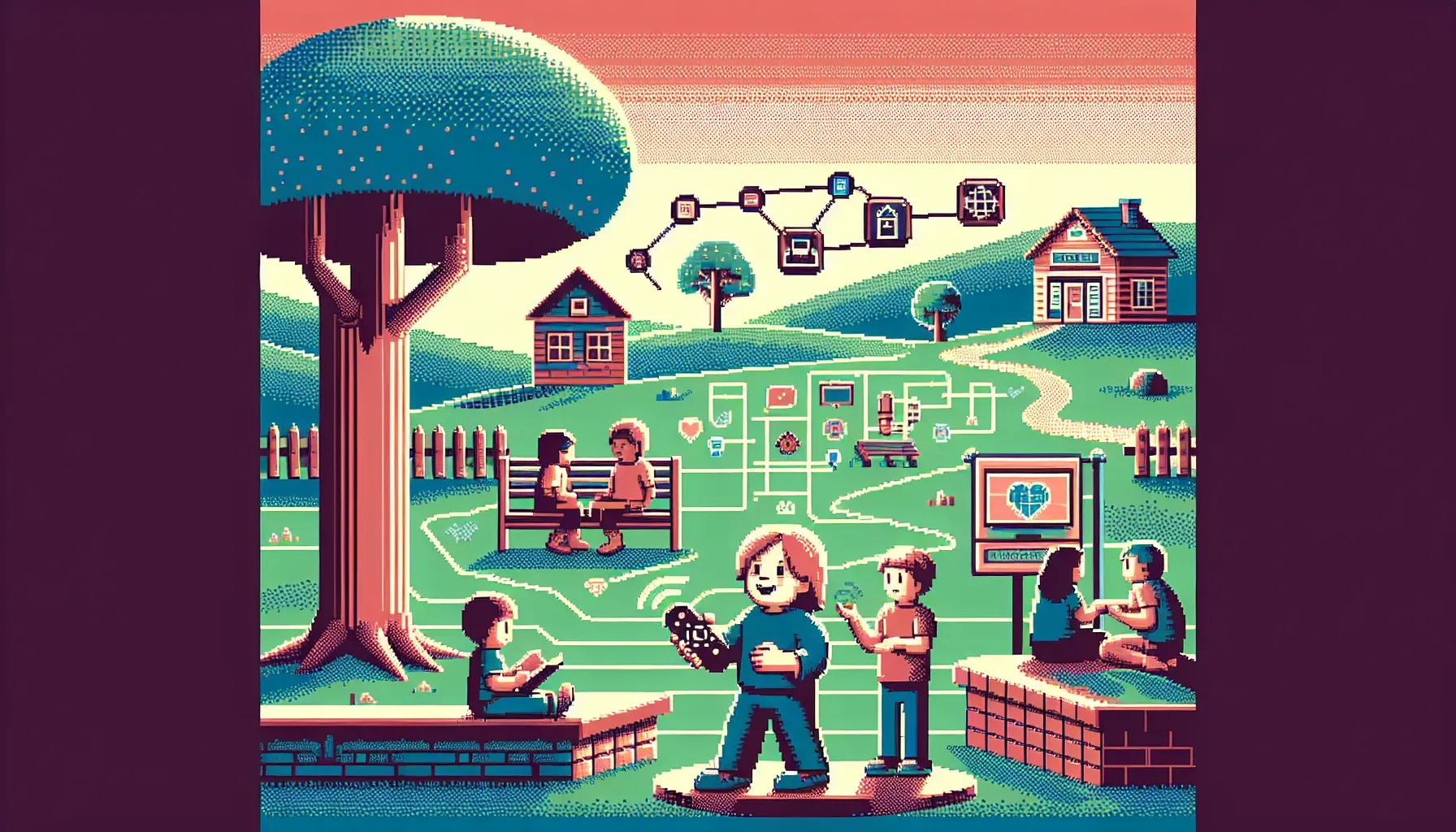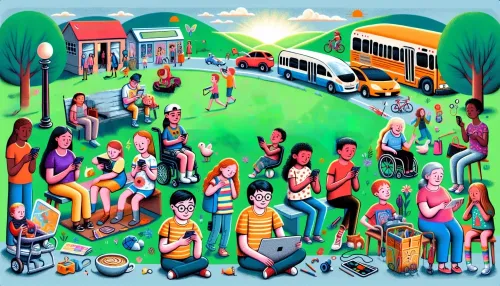Breaking Barriers: Out-of-the-Box Approaches to Addressing Social Challenges Faced by Autistic Children

HorizonsMind Blog is excited to present a comprehensive exploration of innovative strategies for addressing the social challenges faced by autistic children. In this article, we delve into groundbreaking approaches, inclusive initiatives, and creative solutions aimed at redefining social interactions and fostering inclusive environments for autistic children. Let's embark on a journey to explore out-of-the-box methods that hold the potential to break barriers and empower autistic children in their social development.
Inclusive playtime serves as a fundamental setting for nurturing social skills. Traditional play interventions are being redefined to effectively engage autistic children in meaningful interactions. Through meticulously designed play activities, incorporating sensory elements and structured group dynamics, autistic children are provided with personalized experiences that cater to their unique communication and social needs. Activities promoting turn-taking, collaborative play, and sensory integration contribute to fostering a supportive environment wherein autistic children can thrive socially.
Inclusive Playtime Redefined
Technology has emerged as a powerful tool for bridging social gaps among autistic children. Innovative applications and digital platforms are being leveraged to facilitate peer interactions, enabling autistic children to engage in controlled social settings that alleviate anxiety and promote meaningful connections. Virtual reality simulations, interactive storytelling apps, and specialized communication devices are revolutionizing the way autistic children engage with their peers, fostering a sense of belonging and enhancing their social confidence.
How to Engage Autistic Children in Play
Communication lies at the heart of social interaction, and rethinking traditional communication approaches is pivotal in empowering autistic children to form meaningful bonds. Augmentative and alternative communication (AAC) devices, picture exchange communication systems (PECS), and social scripts are tailored strategies that provide autistic children with effective means of expression and comprehension. By embracing diverse communication modalities and incorporating individualized approaches, barriers to social engagement are dismantled, allowing autistic children to express themselves authentically within their social environments.
Embracing neurodiversity entails recognizing and celebrating the unique strengths of autistic individuals within their social contexts. Inclusive education programs, community events promoting neurodiversity awareness, and peer buddy systems are integral components of initiatives aiming to create genuinely inclusive environments. By embracing the various ways in which autistic children perceive, process, and engage with the world around them, an atmosphere of acceptance and appreciation is cultivated, fostering holistic social development and nurturing positive self-identities among autistic individuals.
Related Article: Cultural Resonance and Inclusion: Redefining Autistic Identities and Perspectives Globally
Technology as a Social Connector
Collaboration platforms serve as essential frameworks for building supportive networks that bolster the social integration of autistic children. Interdisciplinary collaborations among educators, therapists, parents, and community advocates are vital in developing cohesive support systems tailored to the diverse needs of autistic individuals. Unified approaches that bridge the gap between home, school, and community environments facilitate consistent support and advocacy for inclusive practices, ensuring that autistic children are afforded opportunities for meaningful social engagement across various facets of their lives.
What Tools Facilitate Peer Interactions?
Community-based initiatives play a pivotal role in extending support beyond traditional educational settings. Local organizations, recreational facilities, and community centers are pioneering initiatives that foster social inclusion by providing safe spaces where autistic children can explore their interests and engage in shared activities with peers. These initiatives not only offer opportunities for skill-building and friendship development but also contribute to raising awareness about autism within the broader community, paving the way for increased understanding, acceptance, and support.
As we conclude our exploration of out-of-the-box approaches to addressing social challenges faced by autistic children, it's evident that innovative strategies hold immense promise in creating environments where neurodiversity is celebrated, social barriers are dismantled, and inclusive interactions thrive. The commitment to embracing unique perspectives, leveraging technology thoughtfully, nurturing collaborative networks, and expanding inclusive opportunities beyond conventional boundaries collectively paves the way for transformative outcomes in empowering autistic children socially.
Frequently Asked Questions
Innovative strategies include redefining inclusive playtime, leveraging technology for peer interactions, and rethinking communication methods. These approaches focus on creating supportive environments that cater to the unique needs of autistic children, fostering their social development through tailored activities and effective communication tools.
Technology serves as a powerful connector by providing applications and digital platforms that enable controlled social settings. Tools like virtual reality simulations and interactive storytelling apps help reduce anxiety, allowing autistic children to engage more comfortably with peers and build meaningful connections.
Community-based initiatives are crucial as they extend support beyond educational settings. They provide safe spaces for autistic children to explore interests and engage in shared activities, promoting friendship development while raising awareness about autism in the broader community, leading to greater acceptance and understanding.
Check Out These Related Articles

The Role of TikTok in Shaping Autism Advocacy and Awareness Among Gen Z

Unleashing Potential: Strategies for Inclusive Playtime with Autistic Children

Exploring the Social Isolation Challenge in Autistic Children
